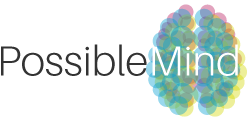So how adaptable is hypnosis? John McGrail, PhD, a renowned clinical hypnotherapist in his post on Brain World described it as ‘Nature’s Swiss Army Life‘, which all of us here at The Possible Mind thought was a fantastic way to describe it.
…the Swiss army knife is truly a versatile and nifty device, allowing us to easily accomplish numerous tasks, from filing nails to opening a bottle of wine. If only there were such a device to help us tackle the bigger issues we face—you know, the stuff like negative habits, feelings, behaviors and physical conditions that hold so many of us back. Well, there is, and it’s called hypnosis…
Source John McGrail, PhD
The article is broken down into different sections:
A Long History of Healing
Here John discusses how hypnosis has been around for 7000 years and is now becoming more accepted and mainstream.
Shattering the Myths
This section looks at how scientific research is showing how hypnosis can help individuals.
We Are All Hypnotized Every Day
From driving the car or getting so engrossed in a film that it scares you or makes you cry is form of hypnosis.
Try a Little Self-Hypnosis
Like our experiments section there are lots of self hypnosis you can try to see its strength.
John shares his own self hypnosis:
Sit comfortably somewhere without distractions or disturbance. Close your eyes and relax them completely; let the lids feel so heavy that they cannot open. Now, do the same with your jaw—let it droop as if the bones and muscles are jelly. Breathe slowly and gently, and relax your neck and shoulders, then arms and hands, torso, hips, upper and lower legs, and feet. Refocus attention to your eyes; gently look up toward the inside of your forehead and breathe in; as you release the breath, silently say, “Totally relaxed, deep sleep.” You are in light hypnosis—nothing more to it. To come out, count “1, 2, 3, 4, 5, eyes open, wide awake.” You’re back. Congratulations, you just hypnotized yourself.
Deep Sleep: How it Works
Discussing how with hypnosis you can bypass the critical (conscious) mind to access the client subconscious mind which John describes as ‘highly focused, open, and wonderfully receptive to new thoughts, ideas, behaviors and feelings both emotional and physical’
Almost Limitless Applications
This section looks at all the different uses of hypnosis including those which really interest us, and hopefully you, the readers of this blog:
…improving focus, concentration and performance in sports, school, or at work; analgesia and anesthesia for medical/dental conditions and chronic pain; minimizing tissue damage, blood loss and accelerating healing from dental and surgical procedures; easing the side-effects of chemo and radiation therapy; managing (sometimes eliminating) many traditionally difficult-to-treat ailments like migraine, IBS, immune disorders, asthma, allergies…
No Silver Bullet
Like every technique it has it’s limits and this section discusses them.
**************************************************************
I think you will agree with me that John wrote a really interesting article that is a concise discussion about hypnosis and it diverse applications.




